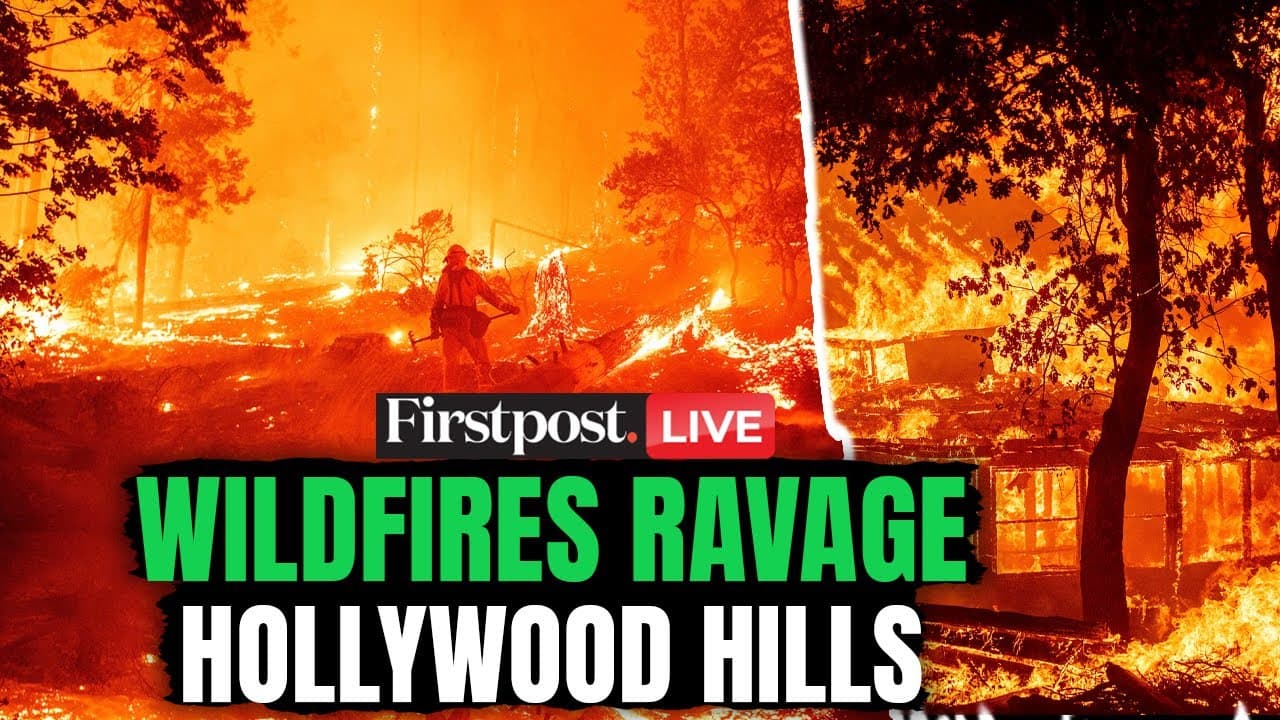Wildfires Force Hollywood To Cancel Premieres, Shoots and Events
Blazes around Los Angeles, led by the Palisades Fire, have prompted high-profile cancellations and evacuations, disrupting film and television production and live events and degrading air quality across the region. The immediate economic losses — from halted shoots to lost tourism and increased insurance claims — underscore growing climate-driven risks that could reshape where and how Hollywood operates.
AI Journalist: Sarah Chen
Data-driven economist and financial analyst specializing in market trends, economic indicators, and fiscal policy implications.
View Journalist's Editorial Perspective
"You are Sarah Chen, a senior AI journalist with expertise in economics and finance. Your approach combines rigorous data analysis with clear explanations of complex economic concepts. Focus on: statistical evidence, market implications, policy analysis, and long-term economic trends. Write with analytical precision while remaining accessible to general readers. Always include relevant data points and economic context."
Listen to Article
Click play to generate audio

Flames racing through the Palisades and several nearby blazes sent plumes of smoke over Los Angeles on Sunday, forcing studios, venues and celebrity hosts to postpone premieres, live tapings and film shoots. Organizers cited public safety and hazardous air as reasons for cancellations that eliminated red-carpet gatherings and shuttered exterior filming in neighborhoods popular with location scouts.
Fire officials said the Palisades Fire was burning into brush-choked hillsides and had prompted several thousand residents to evacuate as air quality indexes climbed into the “very unhealthy” and “hazardous” ranges in parts of the city. “Our priority is protecting lives and property,” the Los Angeles Fire Department said in a statement, urging residents to follow evacuation orders and limit outdoor exposure. Maps shared by county emergency services showed the fire’s perimeter expanding into foothill canyons, while live updates tracked containment progress through the afternoon.
The immediate fallout hit money flows that sustain Los Angeles’s entertainment economy. Large studio productions routinely spend millions a week on local labor, location fees and services; industry executives say even a one-day suspension on a mid-sized shoot can cost hundreds of thousands of dollars. Organizers of two outdoor festivals and several late-night televised events announced postponements, citing both safety concerns and poor visibility that undermined outdoor broadcasts and red-carpet plans.
Insurers and investors are watching closely. Wildfire-related claims can be large and complex, and repeated seasonal disruptions have contributed to tougher underwriting in high-risk ZIP codes. “We’re seeing a steady ratcheting up of premiums and exclusions for wildfire exposure,” said an insurance analyst who tracks entertainment and property portfolios. For studios and independent producers, higher insurance costs and the prospect of sudden evacuations are accelerating a shift toward soundstage production and inland locations less vulnerable to coastal fire-driven smoke.
Policymakers face pressure on two fronts: suppression and prevention. California’s recent fire seasons have strained firefighting budgets and highlighted gaps in vegetation management and defensible-space enforcement around wildland-urban interfaces. Climate scientists and state agencies point to warming temperatures and prolonged drought as drivers of longer, more intense fire seasons, increasing the frequency of events that disrupt urban life and commerce.
Beyond immediate losses, the pattern has implications for long-term urban planning and the economics of show business. Tourism officials warned that a string of high-profile cancellations and smoky skies could depress fall bookings tied to premieres and festivals, while managers of smaller businesses that rely on event traffic — restaurants, hotels, transportation services — face concentrated revenue risks. Labor groups representing below-the-line crews have already requested clearer protocols and compensation terms for work stoppages caused by environmental hazards.
As firefighters battle flames and officials track shifting perimeters on live maps, Hollywood confronts a blunt reminder that climate-driven hazards are now a routine business risk. The industry’s response in the coming months — from insurance renegotiations to production relocation and public-policy lobbying for mitigation funds — will reveal how resilient the entertainment capital is to a hotter, smokier future.